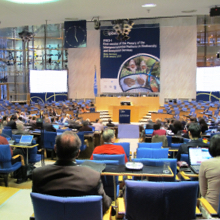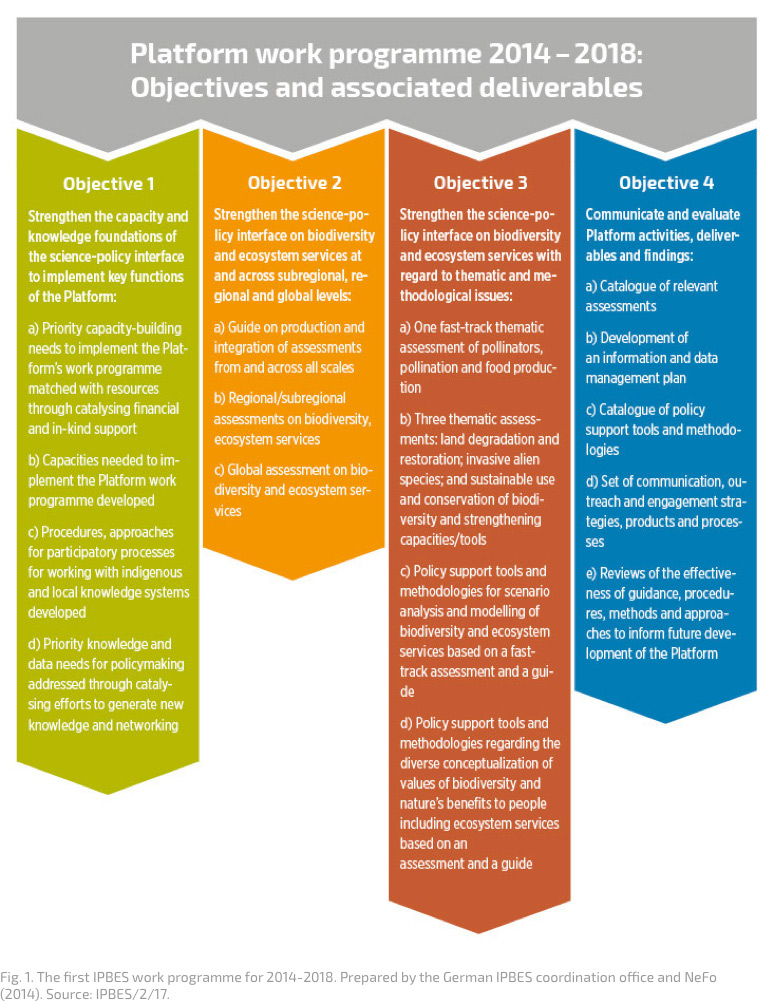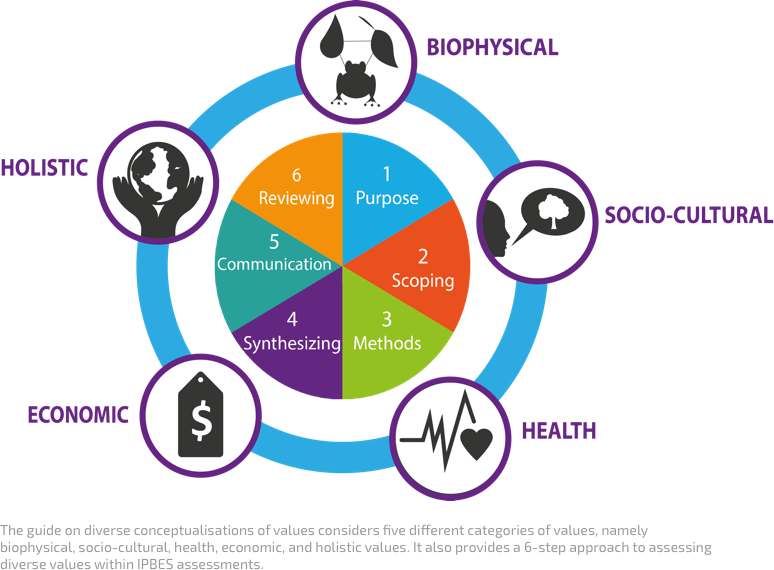IPBES is a new intergovernmental body that synthesizes existing knowledge on the world’s biodiversity and its benefits to derive from its recommendations for policymakers. Learn more about how the ValuES project contributes to the IPBES process.
The Intergovernmental Science-Policy Platform on Biodiversity and Ecosystem Services (IPBES) is an independent intergovernmental body, established under the auspices of UNEP, FAO, UNESCO and UNDP in 2012. The main mandate of IPBES is to compile, systematize and disseminate the latest scientific and other knowledge on biodiversity, ecosystems and their services, to identify tools and methods to protect and conserve them, and to derive from that courses of action. IPBES recommendations should equally benefit national governments, local and regional stakeholders, as well as international biodiversity policy processes, such as the CBD.

To address its four functions, namely (1) assessments, (2) policy tools and methodologies, (3) capacity building, and (4) knowledge generation, IPBES has set up its first work programme for 2014-2018 (see Fig. 1). The core of this programme comprises four regional biodiversity assessments for Africa, the Americas, Asia-Pacific, and Europe/Central Asia, and a global one.

Additionally, four thematic assessments (pollination and food production, land degradation and restoration, invasive alien species, sustainable use of wild species) and two methodological ones (scenarios and models, and diverse values of nature’s benefits) are foreseen. Other deliverables (del.) address cross-cutting issues such as the need for capacity building to implement the work programme, the inclusion of different knowledge systems (e.g. indigenous and local knowledge) into the assessments, and a catalogue of policy support tools, amongst others.

During its 4th plenary session in 2016, IPBES launched a guide on diverse conceptualizations of multiple values of nature and its benefits (del. 3d, see Fig. 2). The guide provides an introduction into the concept of multiple values, looks at a broad range of valuation methodologies, and sets out a step-by-step approach on how to assess and integrate diverse values into IPBES assessments. It also looks at how diverse conceptualisations of values and different valuation approaches can provide input for designing policy support tools.

The concept of multiple values reflects on how differently people value nature and its benefits, depending on the natural space they live, their cultural and institutional backgrounds, as well as their worldviews, principles and preferences. These values can be either synergistic or at odds with each other (e.g. maintaining forest for multiple purposes such as groundwater production and recreation versus wood cutting) and, thus, create the need for action from policymakers to appropriately account for these differences into their decisions. Through this guide, IPBES attempts to shift attention from merely using economic arguments to a more holistic valuation as a basis for ecosystem-related decisions.

With its thematic focus and its wide community of practice, the ValuES project is well -positioned to aid IPBES in achieving its goals. ValuES has been following the developments in IPBES since 2015 and bringing in its expertise into the IPBES work, particularly on the IPBES multiple values concept and with regards to the Platform’s capacity building strategy.
We closely collaborate with the Technical Support Unit on Values (TSUV), based at the National Autonomous University of Mexico (UNAM), who is in charge of disseminating the guide on multiple values into other IPBES deliverables, as well as preparing for a thematic assessment on diverse values. We support workshops and regional dialogues of the TSUV to strengthen the mutual exchange of the IPBES and ValuES communities of practice. In parallel, we support dissemination and practical application of the guide beyond the IPBES process by systematically applying the methods proposed by the guide at the ValuES Methods Navigator and in ValuES Trainings.